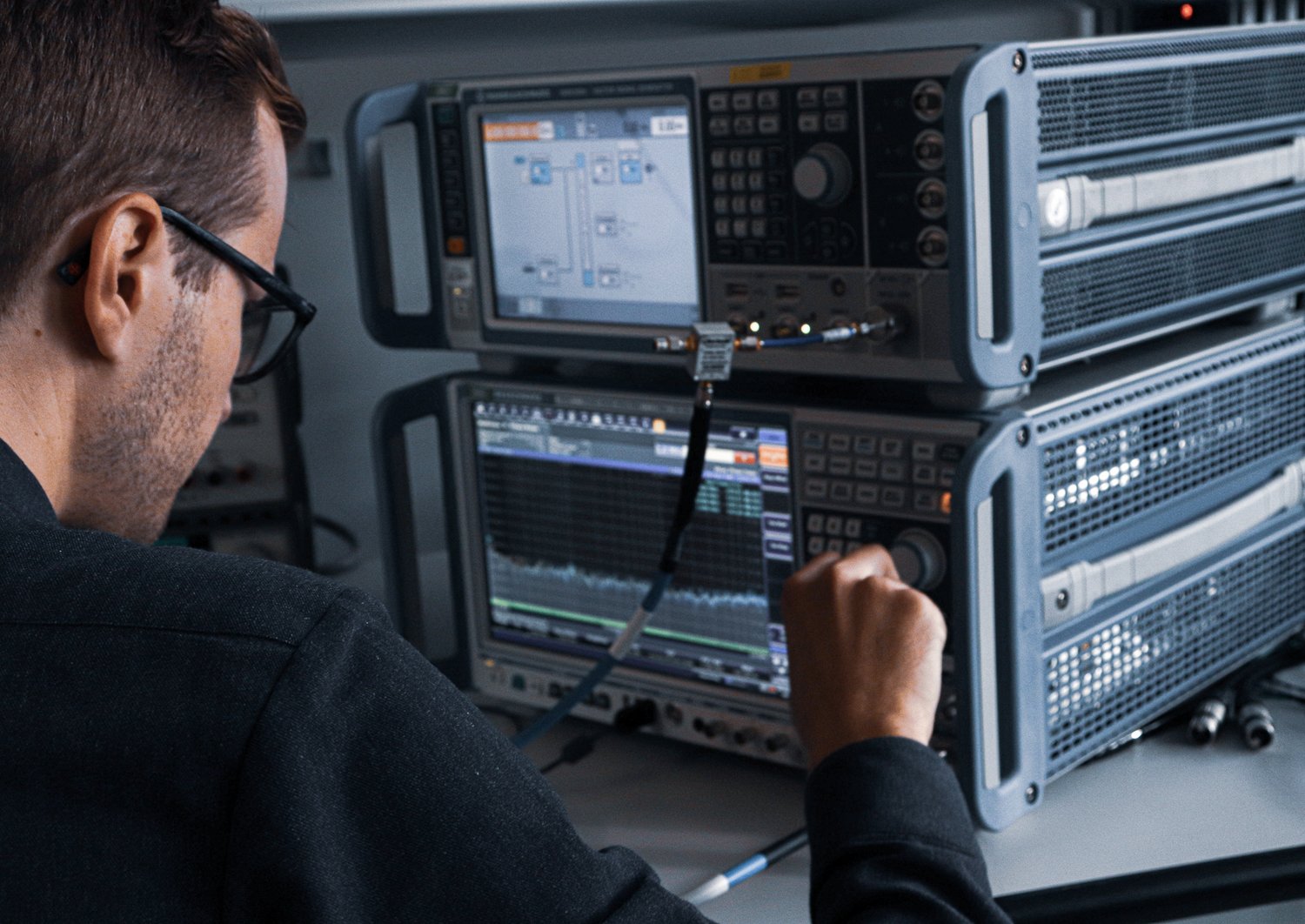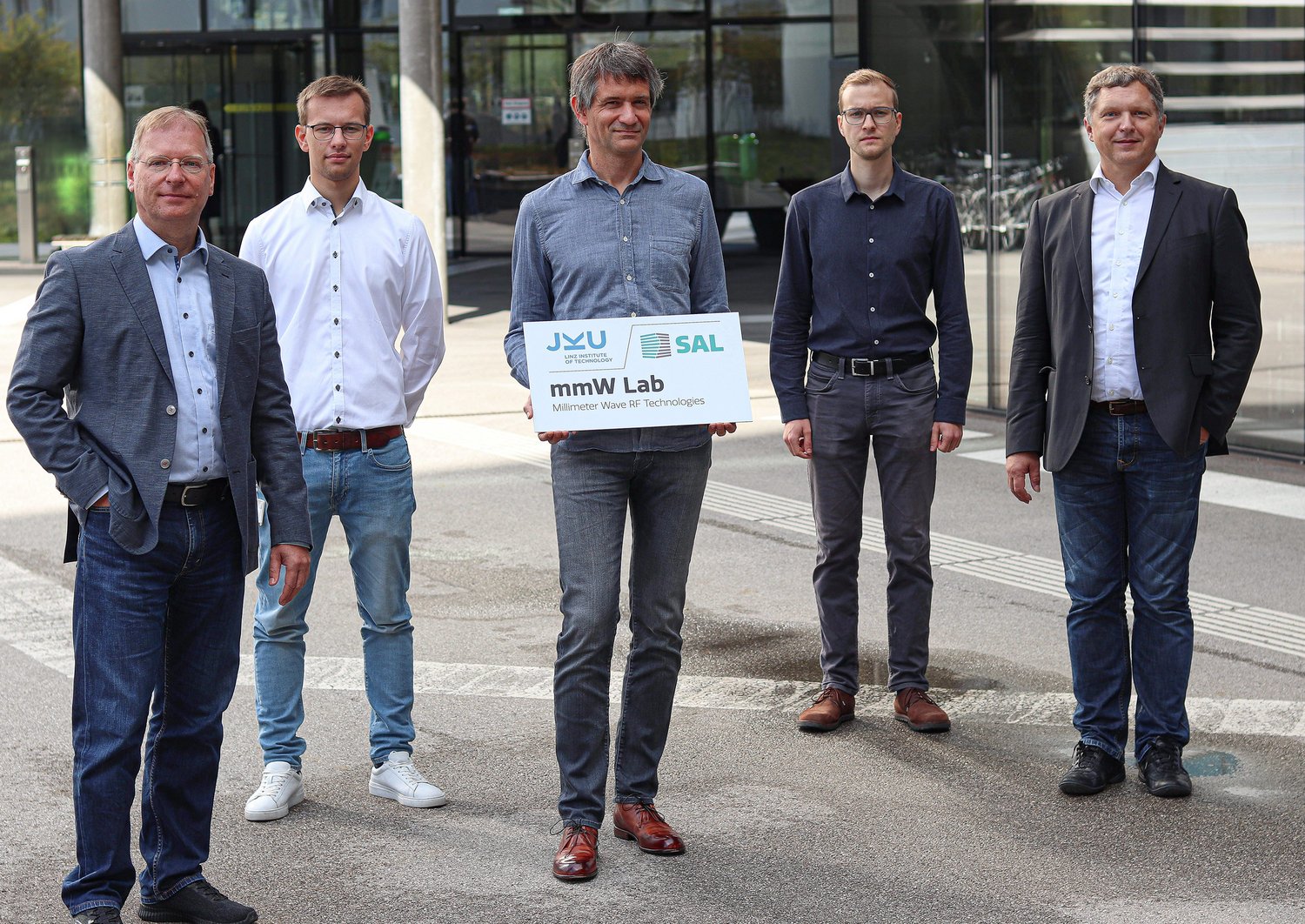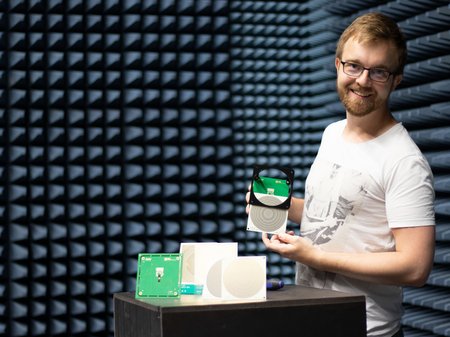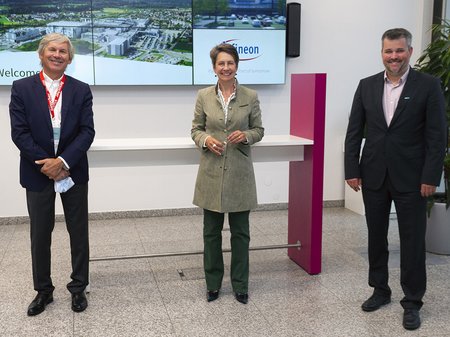Silicon Austria Labs (SAL), Austria's top research center for electronic based systems, is working in Linz, one of its three locations, together with the Johannes Kepler University (JKU) on key technologies for the wirelessly networked factory of the future. Reliable wireless networking of the production systems is intended to enable highly efficient control of production using digital twins. “Linz should become a center for 6G in Europe for industrial applications. This collaboration between the JKU, SAL and subsequently with industrial partners also strengthens Upper Austria as a production location,” emphasizes Markus Achleitner, Regional Councilor for Economic Affairs and Research .
"The innovation location Upper Austria wants to shape the digital transformation - a central field of action of our Upper Austrian business and research strategy #upperVISION2030 - and be at the forefront. By using the latest technologies such as 5G and 6G in production, our leading companies can continue to produce competitively and sustainably in Upper Austria in the future. This keeps the added value in the country and secures highly qualified jobs”, says Achleitner.
"University SAL Labs" enable knowledge transfer to industry
The idea behind the "University SAL Labs" is the focused cooperation with universities on key topics for electronic based systems. Researchers from the University and SAL conduct basic-oriented research in the lab, which can later be implemented in cooperations with industry. "Silicon Austria Labs was founded to conduct international cutting-edge research and to strengthen the Austrian electronics industry and the entire EBS eco-system. The cooperation with first-class researchers from JKU in the field of radio frequency technologies and artificial intelligence is a central part of our strategy," says Gerald Murauer, Executive Director of SAL. In addition to JKU Linz, SAL is also working with TU Graz and the University of Klagenfurt in such joint research labs.
Several JKU institutes participate in the research labs. "Only those who think one step ahead can shape the future. This cooperation is supposed to do just that: 5G is here now – so we want to think about 6G today, conduct our research and thus shape not only the technology of tomorrow, but also its effects. It is a holistic approach that goes beyond the technological implementation. This is what JKU and the LIT, the Linz Institute of Technology, stand for with their interdisciplinary approach and proven technical know-how," says Meinhard Lukas, Rector of JKU.
6G combines radio frequency technology with artificial intelligence
Radio frequency systems provide the physical connection for wireless communication systems. This enables mobile broadband connection of mobile devices, wireless "machine-to-machine" communication and increasingly wireless sensor networks in industrial applications. "Radio frequency technology is the technological backbone, especially for digital applications in the areas of 5G/6G, autonomous driving, medical technology or material testing. While 5G is only just getting market ready, we are already researching the next generation, 6G," explains Thomas Lüftner, CTO and Head of Research Divisons RF Systems and Embedded Systems at SAL. "New with 6G is the targeted use of embedded machine learning, i.e. artificial intelligence, for signal processing in radio frequency systems. With our joint labs with JKU, we are now at the forefront of the international research in this area," explains Lüftner. The focus on radio frequency technology in combination with artificial intelligence is well located in Linz, as Upper Austria has been operating very successfully in these areas for years.
eSPML Lab works on paradigm-shifting signal processing solutions
The eSPML Lab combines machine learning and signal processing with novel integrated circuit design approaches to make leaps forward in terms of power as well as cost efficiency and to reach yet unachieved performance and capabilities of embedded solutions. The lab is managed by Mario Huemer (Institute for Signal Processing, JKU) and Thomas Pleschke (SAL) or, in the future, Pedro Julian (SAL). Pedro Julian, who joined SAL Linz in February 2021, is an Argentine professor of integrated circuits, including neural networks, and a visiting professor at the American Johns Hopkins University.
Video: Learn more about the eSPML Lab
mmW Lab researches the convergence of radar and mobile communications
In the mmW Lab, researchers are working on millimeter wave technologies in high frequencies from 100 to 300 GHz. These are mainly used for near-range radars or communication with high data rates. The mmW Lab is led by Gernot Hueber (SAL) as well as Andreas Stelzer (Institute for Communications Engineering and RF-Systems, JKU) and Harald Pretl (Institute for Integrated Circuits, JKU). In the lab, the interdisciplinary team works primarily on the convergence of communication, radar and high-frequency sensors, which 6G is striving for. The focus here is on semiconductor chips with integrated high-frequency circuits and the associated system solutions.










